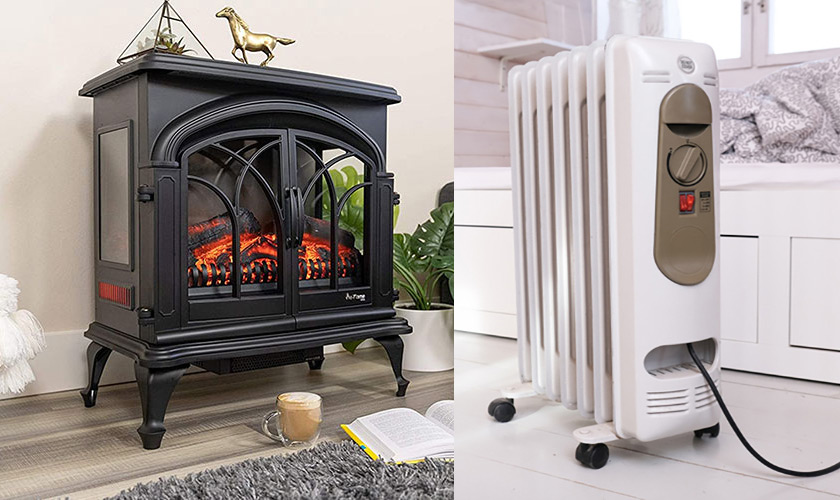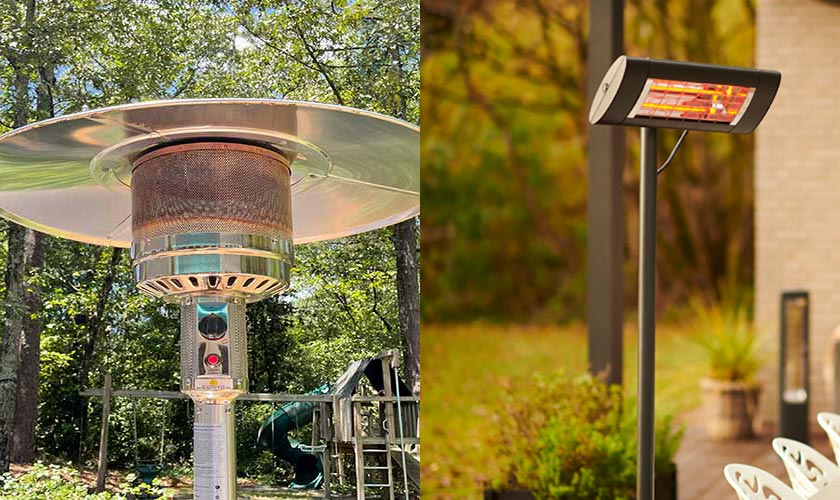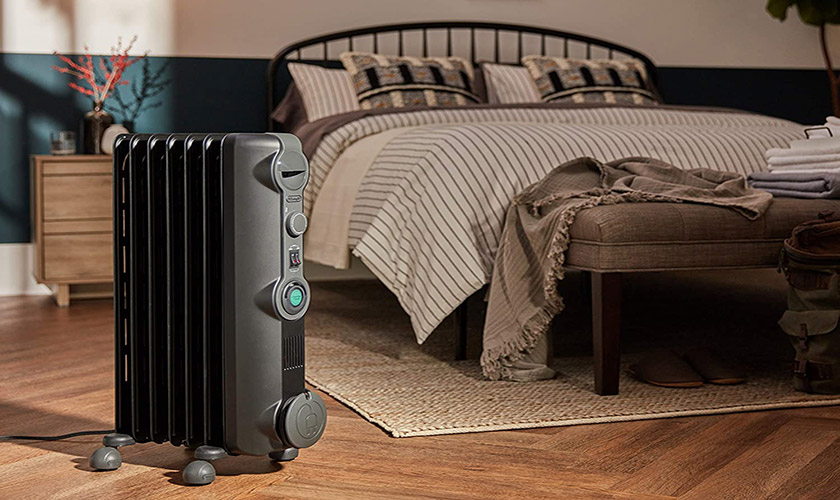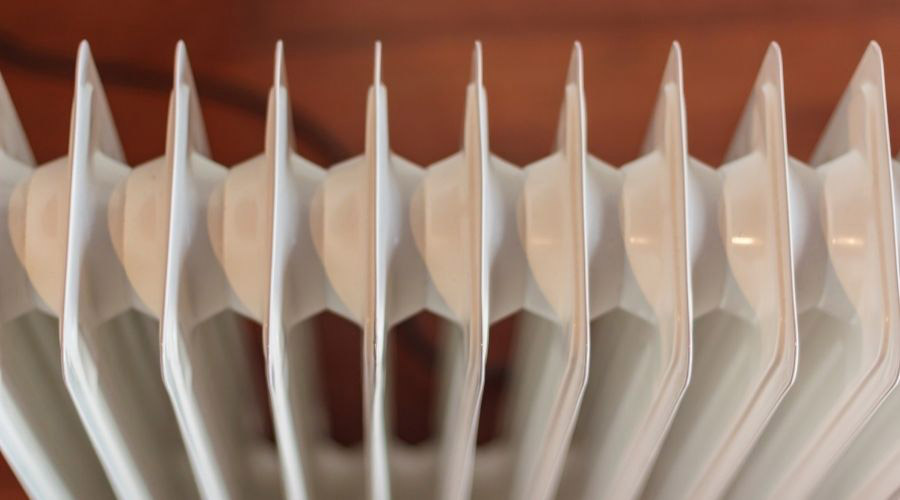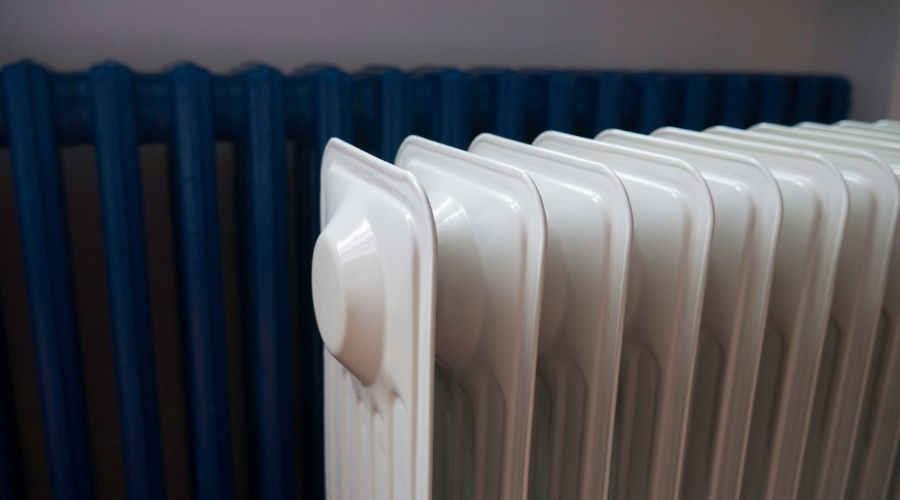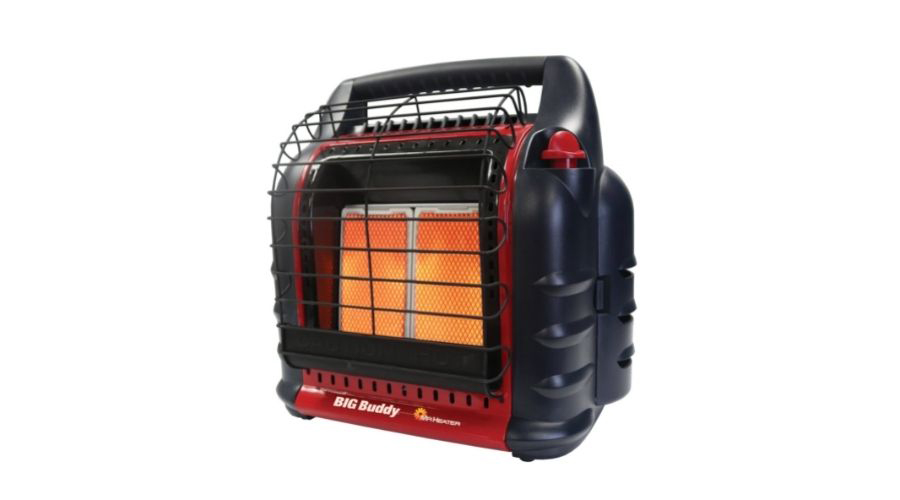
Portable propane heaters are great to have whenever it is the winter season, and you need something cheap, easy-to-use, and very efficient in heating your space.
But the problem with propane heaters is that it uses gas (propane), which might be dangerous if left circulating in an unvented space. With that in mind, does a portable propane heater need to be vented?
Portable propane heaters only need to be vented if used inside a confined space. While many propane heaters are rated for indoor use, this refers to garages and shops with more natural ventilation. Burning propane produces carbon monoxide, which can be harmful and poisonous to your body in large quantities.
Propane portable heaters can be dangerous, especially if you are not careful enough when using them. That’s why you must follow the proper safety precautions when dealing with a portable propane heater.
Still, portable propane heaters are beneficial and generally safe (otherwise, they wouldn’t be allowed on the market). So, by knowing how to vent your propane heater correctly, you will be able to use it without worrying about its dangers and hazards.
Does A Portable Propane Heater Need To Be Vented?
When discussing whether a propane heater needs ventilation, it is best to learn more about the gas that runs this heater.
You Use Propane Almost Anywhere
Propane is one of the household’s most valuable gases for practical purposes because you can use it in many ways. It might surprise you that you are probably regularly cooking your food with a propane gas stove. Some fireplaces are powered or fueled by propane.
Propane is so helpful and widely used in many American homes because it is a clean-burning gas compared to fossil fuels such as oil and coal. But what does it even mean for propane to be clean-burning?
It Does Not Leave Pollutants
That means it doesn’t leave many contaminants and pollutants when burning propane. Propane is a better option than most other fuel sources because it contains fewer contaminants and greenhouse gas emissions.
The Safety Of These Heaters
Still, because propane is a clean-burning gas, does it mean it is safe for you? Not precisely because clean-burning fuel sources and gases still leave contaminants and greenhouse gases behind as byproducts when burned for heat and energy.
In other words, propane can still threaten the environment and humans.
One of the gases that burning propane produces is carbon monoxide, which is known to be a gas that is toxic to humans in large quantities. While ordinarily harmless in smaller quantities and when the room is ventilated, it may build up the oxygen space in a stuffy room.
When there is too much carbon monoxide in the surrounding air, it will also end up replacing oxygen in your system. As such, you won’t be able to supply your cells with oxygen, and you will end up with carbon monoxide poisoning.
That’s why, in many situations, those who happen to be trapped in a burning building may die from carbon monoxide poisoning from the fumes emitted by the flames before they even end up getting harmed by the actual flames.
Gas Can Get Built Up
As mentioned, carbon monoxide produces by anything that can cause flames, including wood, gasoline, oil, charcoal, and propane.
That’s why, even though propane doesn’t emit many harmful substances, it may still become harmful when you burn too much of it in a closed room.
The buildup of toxic gases leads us to the point that a portable propane heater can be dangerous when you do not use it correctly—leaving it on for a long time in a room with no ventilation.
So, yes, a portable propane heater needs to be vented, or you might end up suffering from carbon monoxide poisoning if the gas builds up in the room for a very long time without it getting out.
When that happens, carbon monoxide will replace the oxygen in the room, and the situation will be similar to that of you trapped in a room of a burning building.
Indoor Propane Heaters
Still, it depends on whether you are using an indoor propane heater or an outdoor propane heater. Indoor propane heaters were designed to be used indoors where there isn’t much ventilation and openings for the carbon monoxide to escape.
Outdoor Propane Heaters
Meanwhile, outdoor propane heaters should always remain outdoors because they don’t have the safety mechanisms to allow them to be indoors.
The Difference Between Each Indoor and Outdoor Heaters
So, the main difference between the two is that the indoor propane heater functions in the same way as an outdoor propane heater.
However, the former has an automatic switch-off feature that turns the propane heater off when the oxygen levels in the room drop due to too much carbon monoxide. An outdoor portable propane heater doesn’t have that feature.
The main point here is that propane heaters should use vented or open enough to expel carbon monoxide. Carbon monoxide can escape and get dispersed into the atmosphere better with some ventilation, whether using an indoor propane heater or an outdoor propane heater.
How Much Ventilation Do You Need For A Propane Heater?
So, how much ventilation do you need to ensure that a propane heater is safe for you and everyone around you? Something as simple as an open window will be enough for you to give your room enough ventilation when using a propane heater.
Or, if you use one in a small room in the house, you may open your door a bit to allow the carbon monoxide to escape the room.
You don’t even have to keep the window or the door open the entire time in many cases. If you have a carbon monoxide detector, you should open the door only when the levels are nearing danger.
Otherwise, there probably isn’t a need for you to keep the room ventilated the entire time if you are not planning on using the portable propane heater for extended periods.
Still, one of the tests that your room needs ventilation is when the air starts to smell weird and gassy. When that happens, you should turn the portable propane heater off to ensure it is no longer releasing harmful gases into the immediate environment.
After that, you should open the windows or the doors to let the carbon monoxide escape. You may want to turn the heater on only after you no longer smell anything weird.
How Do You Vent A Propane Heater?
As to how you vent a propane heater, again, it is so simple. You only have to open the window so that the carbon monoxide or any of the excess gases that may be harmful would be allowed to escape so that they won’t end up filling the room that was supposed to be for oxygen.
You don’t have to leave a window open the entire way. In many cases, keeping a window open a few inches may already be enough to let the gas escape. The same goes for doors that you are keeping open.
But, if you have a ventilation system in your house or apartment building, you wouldn’t have to keep the windows or doors open because the ventilation system will take the gas out of your place.
In any case, it still is better to make sure that you focus on monitoring the situation yourself because it can be pretty obvious just by judging the smell alone that the air may already be full of carbon monoxide.
Final Thoughts
It is essential to ensure your propane space heater has ventilation. Being ventilated helps you stay safe from any carbon monoxide poisoning.


